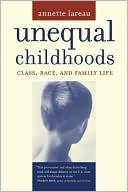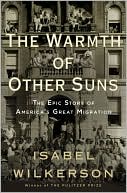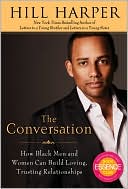Unequal Childhoods: Class, Race, and Family Life
Search in google:
"Less than one in five Americans think 'race, gender, religion or social class are very important for getting ahead in life,' Annette Lareau tells us in her carefully researched and clearly written new book. But as she brilliantly shows, everything from looking authority figures in the eye when you shake their hands to spending long periods in a shared space and squabbling with siblings is related to social class. This is one of the most penetrating works I have read on a topic that only grows in importance as the class gap in America widens."—Arlie Russell Hochschild, author of The Time Bind and The Commercialization of Intimate Life"Sociology at its best. In this major study, Lareau provides the tools to make sense of the frenzied middle-class obsession with their offspring's extracurricular activities; the similarities between black and white professionals; and the paths on which poor and working class kids are put by their circumstances. This book will help generations of students understand that organized soccer and pick-up basketball have everything to do with the inequality of life chances."—Michele Lamont, author of The Dignity of Working Men: Morality and the Boundaries of Race, Class, and Immigration"Drawing upon remarkably detailed case studies of parents and children going about their daily lives, Lareau argues that middle-class and working-class families operate with different logics of childrearing, which both reflect and contribute to the transmission of inequality. An important and provocative book."—Barrie Thorne, author of Gender Play: Girls and Boys in School"With rich storytelling and insightful detail, Lareau takes us inside the family lives of poor, middle-class, and affluent Americans and reminds us that class matters.Unequal Childhoods thoughtfully demonstrates that class differences in cultural resources, played out in the daily routines of parenting, can have a powerful impact on children's chances for climbing the class ladder and achieving the American dream. This provocative and often disturbing book will shape debates on the U.S. class system for decades to come."—Sharon Hays, author of Flat Broke with Children"Drawing on intimate knowledge of kids and families studied at school and at home, Lareau examines the social changes that have turned childhood into an extended production process for many middle-class American families. Her depiction of this new world of childhood—and her comparison of the middle-class ideal of systematic cultivation to the more naturalistic approach to child development to which many working-class parents still adhere—maps a critically important dimension of American family life and raises challenging questions for parents and policy makers."—Paul DiMaggio, Professor of Sociology, Princeton University"Annette Lareau has written another classic. Her deep insights about the social stratification of family life and childrearing have profound implications for understanding inequality — and for understanding the daily struggles of everyone attempting to raise children in America. Lareau's findings have great force because they are thoroughly grounded in compelling ethnographic evidence."—Adam Gamoran, Professor of Sociology and Educational Policy Studies at the University of Wisconsin-Madison"With the poignant details of daily life assembled in a rigorous comparative design, Annette Lareau has produced a highly ambitious ethnographic study that reveals how social class makes a difference in children's lives. Unequal Childhoods will be read alongside Sewell and Hauser, Melvin Kohn, and Bourdieu. It is an important step forward in the study of social stratification and family life, and a valuable exemplar for comparative ethnographic work."—Mitchell Duneier, author of Sidewalk and Slim's TableLibrary JournalIn this thought-provoking book, Lareau (sociology, Temple Univ.) challenges the widely held perception of America as "the land of opportunity," where anyone, no matter what his or her background, can rise to great heights of achievement. Instead, she asserts, differences in child-rearing practices among social classes (race notwithstanding) profoundly influence the ways in which children think about and conduct themselves in the larger world as they grow up. Using richly detailed case studies, Lareau identifies those behaviors and compares those associated with the "concerted cultivation" typical of middle-class parenting (e.g., after-school programs) with the "accomplishment of natural growth," her name for the parenting style of harried working-class and poor parents. While the enriched activities of middle-class children put them in good stead in school, athletics, and other social situations, they may come at the cost of overscheduling and stress. Conversely, while working-class children may long to be on soccer teams or go horseback riding, they learn to entertain themselves and have close family ties. This sensitive, well-balanced book is highly recommended for academic, special, and large public libraries.-Ellen D. Gilbert, Princeton, NJ Copyright 2003 Reed Business Information.
Acknowledgments1Concerted Cultivation and the Accomplishment of Natural Growth12Social Structure and Daily Life14Pt. IThe Organization of Daily Life333The Hectic Pace of Concerted Cultivation: Garrett Tallinger384A Child's Pace: Tyrec Taylor665Children's Play Is for Children: Katie Brindle82Pt. IILanguage Use1056Developing a Child: Alexander Williams1087Language as a Conduit for Social Life: Harold McAllister134Pt. IIIFamilies and Institutions1618Concerted Cultivation in Organizational Spheres: Stacey Marshall1659Concerted Cultivation Gone Awry: Melanie Handlon18210Letting Educators Lead the Way: Wendy Driver19811Beating with a Belt, Fearing "the school": Little Billy Yanelli22112The Power and Limits of Social Class233App. AMethodology: Enduring Dilemmas in Fieldwork259App. BTheory: Understanding the Work of Pierre Bourdieu275App. CSupporting Tables279Notes289Bibliography313Index325








